Silverware gleams, the fireplace in the drawing-room is ablaze, the maids have dusted the last speck from the ornate banisters, gowns have arrived from town, and the footmen’s boots are polished to a mirror sheen: Downton Abbey is abuzz with preparations for the arrival of its most distinguished guests – the King and Queen. The year is 1927, and George V, the grandfather of our current Queen Elizabeth II, sits on the throne.
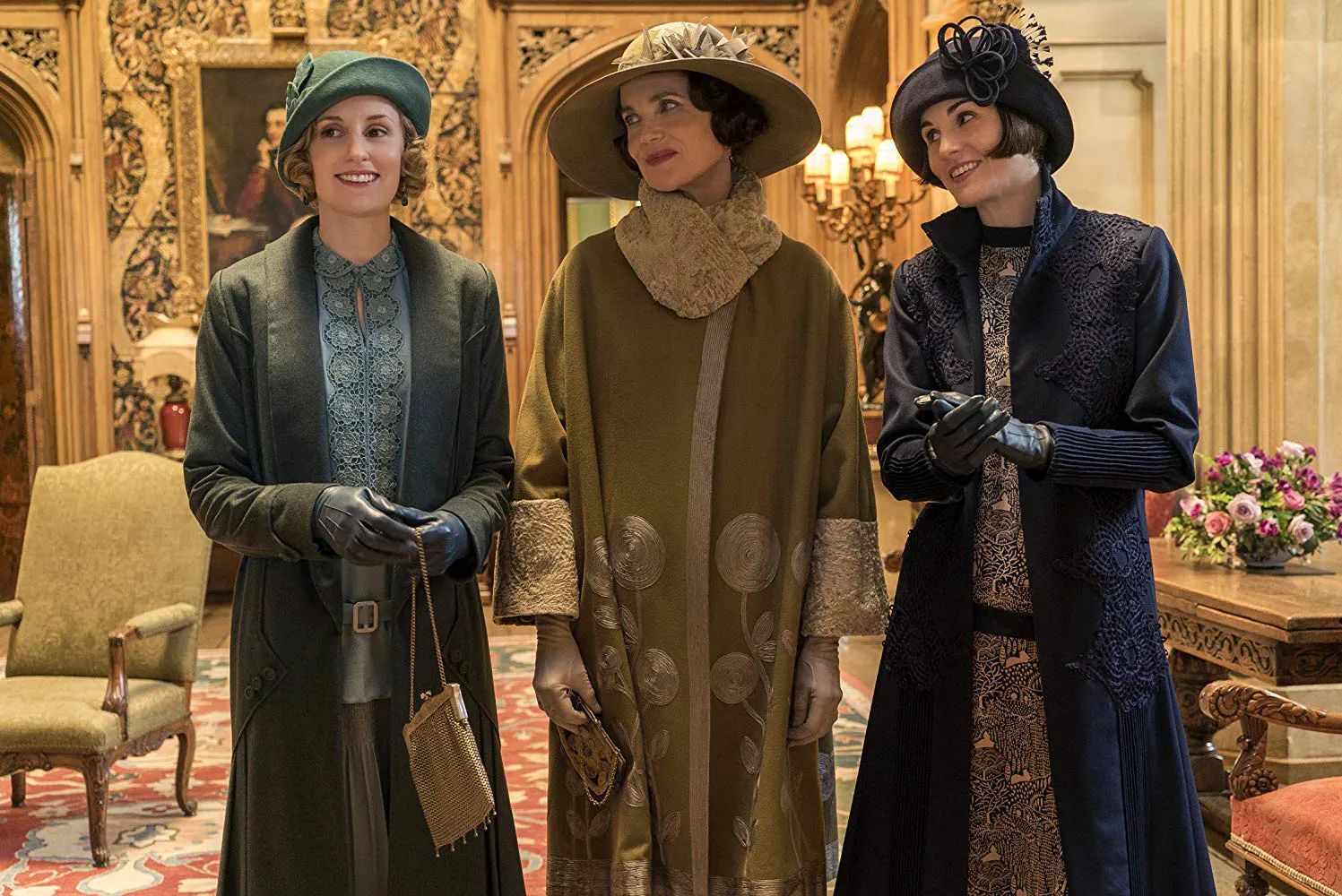
The series, now continued in feature film form, began on April 15, 1912, when the Titanic sank to the bottom of the Atlantic, taking with it the lives of the abbey’s heirs, who happened to be on that ill-fated voyage. For the next twelve years, the Crawleys and their servants (it’s never quite clear who’s in charge) at Downton contested the line of succession, married and broke off engagements, died and were born, weathered reputation scandals, survived World War I, sat in prison, competed for top prizes at the orchid show, and embraced electricity and the telephone – it took six whole seasons to sort it all out.
Downton Abbey: The Movie
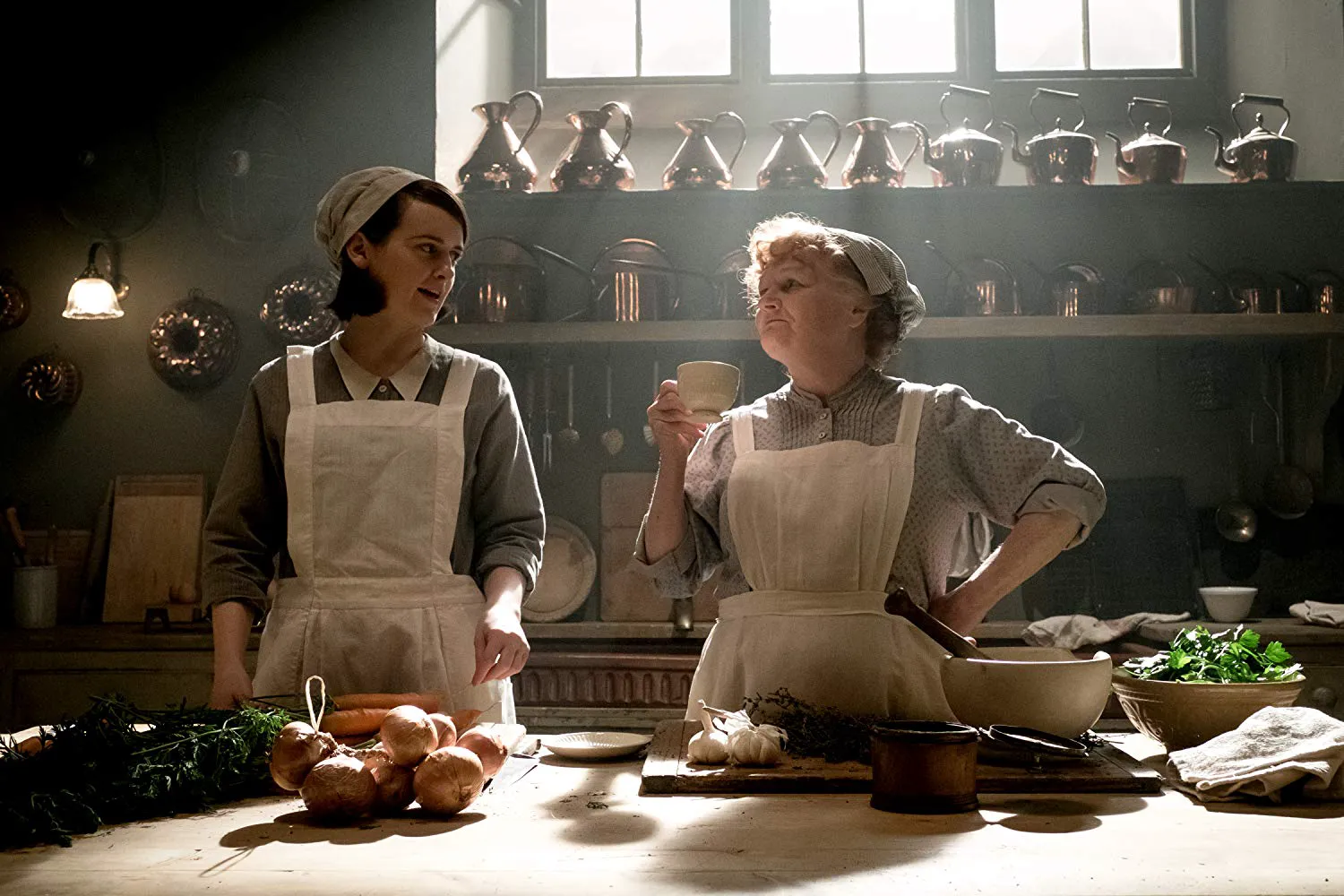
Julian Fellowes, the constant writer and showrunner of “Downton Abbey,” bid farewell to his characters around a Christmas tree on the eve of 1926, leaving them in good health and hopeful about reconciling with inevitable progress. Now, almost 5 years after the finale, they’ve returned. To say this is the first feature film for “Downton Abbey” is a bit of a fib – Fellowes has often delighted fans with Christmas special episodes that hardly differ from the film, except they haven’t graced the big screen. From receiving the letter from Buckingham Palace to the celebratory dinner, there are only two weeks, and everything must be done: not only the characters are in a hurry, but the filmmakers themselves – the concentration of events and micro-incidents per minute of runtime is off the charts, it seems like there would be enough for at least another season. The leisurely pace of the series was the subject of endless jokes, but this time the viewer will hardly have time to catch their breath: each new plot twist treads on the heels of the previous scene, as if they are racing headlong to the credits.
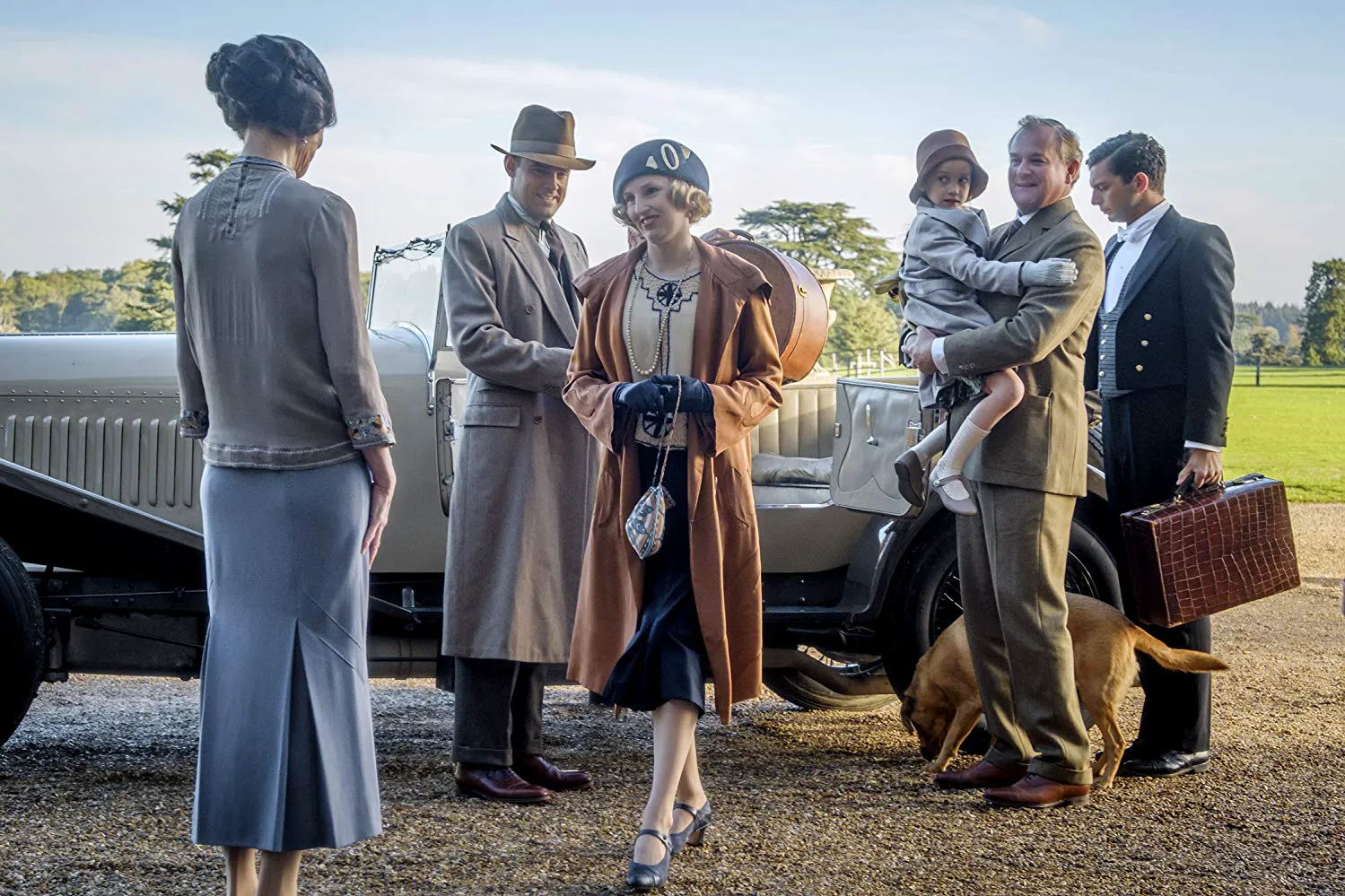
Tradition vs. Progress
The saga of the Crawley family can be called overly predictable and somewhat naive, but it’s more appropriate to appeal to traditions: all the battles under the roof of the house are built around the clash between the bygone Victorian era and the England of the new century. Technological progress and the industrial revolution are equally traumatic and merciless to everyone: both the farmer and the earl. Capitalism has to get along with the monarchy, the nobility loses its former privilege, marriages become more and more unequal, and a maid can become the mistress in a “respectable house.” Having identified such a head-on collision, Fellowes masterfully juggles stereotypes, turning them inside out, and endlessly forces the characters to choose: keep up with the times or remain true to the traditional way of life? The feature film hardly takes a step away from the intended course, only exacerbates the poles.
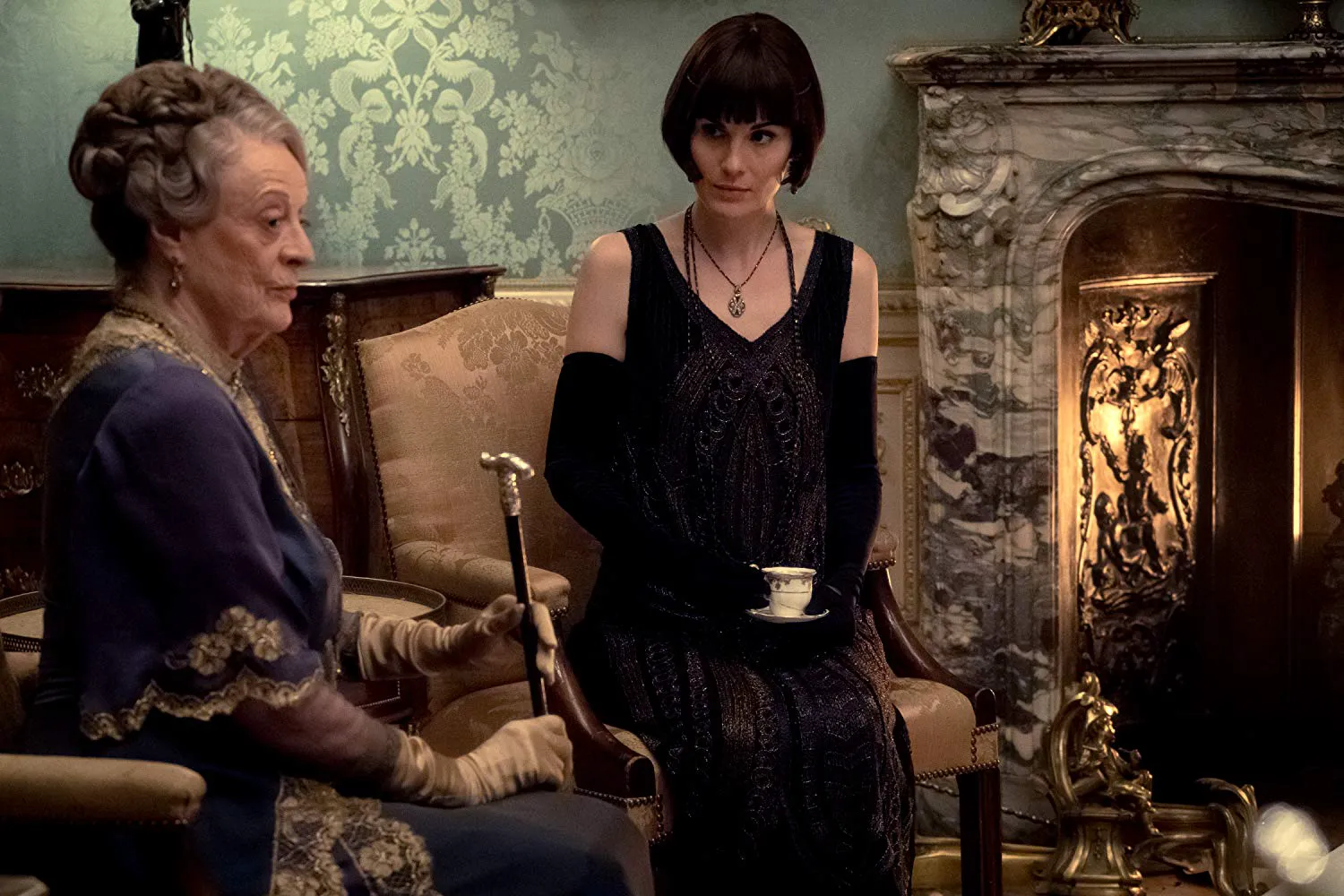
A Familiar World
Downton Abbey – for those who have already been to the estate, it’s like returning home after a long absence, where everything is as it used to be: the Dowager Countess of Grantham (the inimitable Maggie Smith, who, in view of the big screens, can count on more solid awards) expresses herself in nothing but quotable aphorisms, the Crawley sisters cling to each other under their mother’s futile attempts to calm them down, Mrs. Patmore bustles in the kitchen, and the younger generation plays with the nanny in the garden to the accompaniment of music that is easy to guess from three notes. The usual and familiar course of things turns into chaos with the visit of the royal couple: the boiler broke down at the most inopportune moment, the dress ordered in the catalog is not the right size, and the monarch’s annoying retinue gets in the way, preventing the servants from commanding in their own home. Fellowes is true to his reverse irony on the theme of “who’s the boss here.” Those who find themselves at Downton Abbey for the first time will receive a horse dose of the best traditions of the series. Sparkling outfits, luxurious interiors, where you can see every crystal on the chandelier in the dining room, the gradation of humor by class, British etiquette and, of course, dancing – all this will rush past the viewer in a whirlwind. They, however, have not been forgotten: new guests in the house will not be too lazy to explain who is who and how the chauffeur became a gentleman.
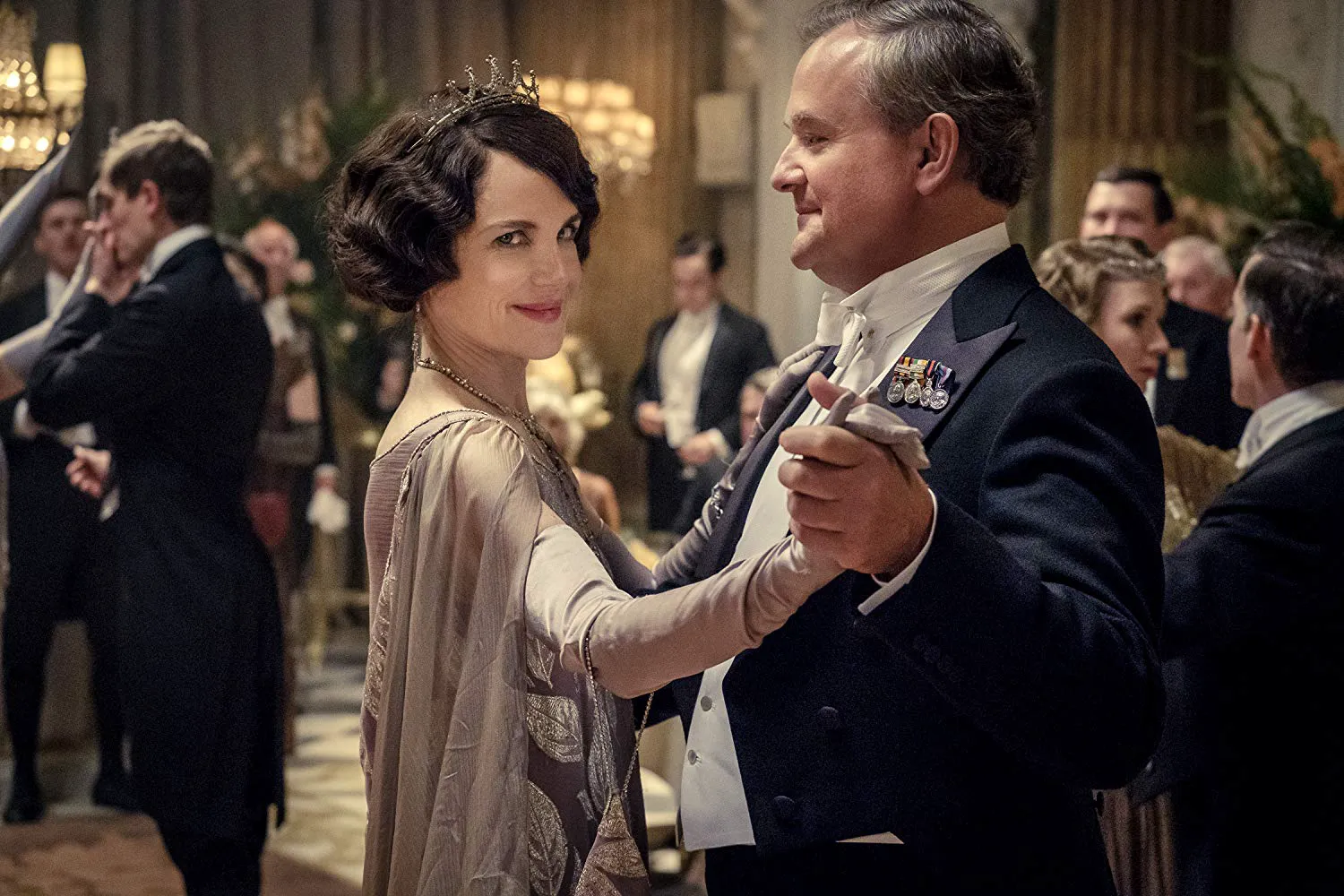
Fellowes’ main merit lies in the words and faces with which he composes historical changes. Humanizing the era, he does not pass sentences, does not look for morals, except for everyday kindness and honor, but only ironizes over manners and habits, but is there a universe where England is possible without traditions? Not only at the beginning of the century, but also today: the Duchess of Cambridge, Kate Middleton, visited the filming, and the whole group sings in unison that it was both the most difficult and the best day at work. Conservatives and liberals can fight endlessly, but at the same time they manage to get along in the same house (Downton Abbey as a whole country), moving forward towards the future through compromise. Behind all this facade of ideological confrontation lies a saga about a family, where you can become relatives not by blood, but by a common roof. Without neglecting (and neglecting too) class etiquette, the lords and servants ultimately form a bizarre alliance, much stronger than kinship, and only in this way, armed with humor, shoulder to shoulder, are they ready to meet progress and say goodbye to dusty foundations (however, not all of them).
The main thing, as it was in this story, remains the house: generations change, but the estate stands – therefore, there is no point in talking about the completion of the series with a full meter. It is endless in both directions of the timeline, another hundred years will pass, everything will change, and Downton Abbey will remain in place. And the argument between the conservative and the liberal will echo from the dining room.